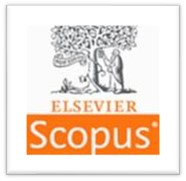Document Type
Article
Department
School of Nursing and Midwifery, Pakistan
Abstract
Introduction/Objective: There is an international consensus on the significant role of competent midwives in improving maternal and newborn health indicators. Midwives and midwifery education in the developing world including Pakistan have lagged behind in being part of higher education. To enhance the quality of maternal and newborn services through competency based higher education in midwifery, the first Bachelors of Science in Midwifery (BScM) programme was introduced in Pakistan. As part of a larger study about establishing this programme, this paper focuses on the reflective logs of midwifery faculty members who initiated this new programme in Pakistan.
Method: The team of faculty members involved in the planning and execution of the programme were asked to record their reflections throughout the process of planning the programme to facilitating students in the first cohort. These reflections were collected at the time of the graduation of first cohort in 2014 and content analysis was applied to identify major themes emerging from the reflections.
Findings: Major themes which emerged were: a) Scaling up of faculty competence, b) Utilizing student diversity as strength, c) Supporting students’ transition and adjustments in the programme d) Scaffolding students’ learning e) Helping students acquire clinical competencies. Overall, the team regarded the experience as unique and enriching for both students and faculty. The first Bachelors in Midwifery demanded a great deal of theoretical and clinical proficiency from faculty. Rigorous planning, networking with international midwifery experts, continuous faculty development, facilitating student learning through scaffolding, and incorporating periodic feedback from students were found to be the major strengths of the programme.
Conclusion: The Bachelor of Midwifery programme in Pakistan has given new hope to the profession. The lessons learned and some of the practical recommendations may prove useful to other institutions and South Asian countries intending to initiate similar programmes.
Recommended Citation
Lakhani, A, Ali, S A, Mubeen, K, Baig, M, Shahid, S, Jan, R, & Kaufman, K. Implementation of a bachelor’s in midwifery programme in Pakistan: Reflections of midwifery faculty. Journal of Asian Midwives. 2017;4(2):3–14.



